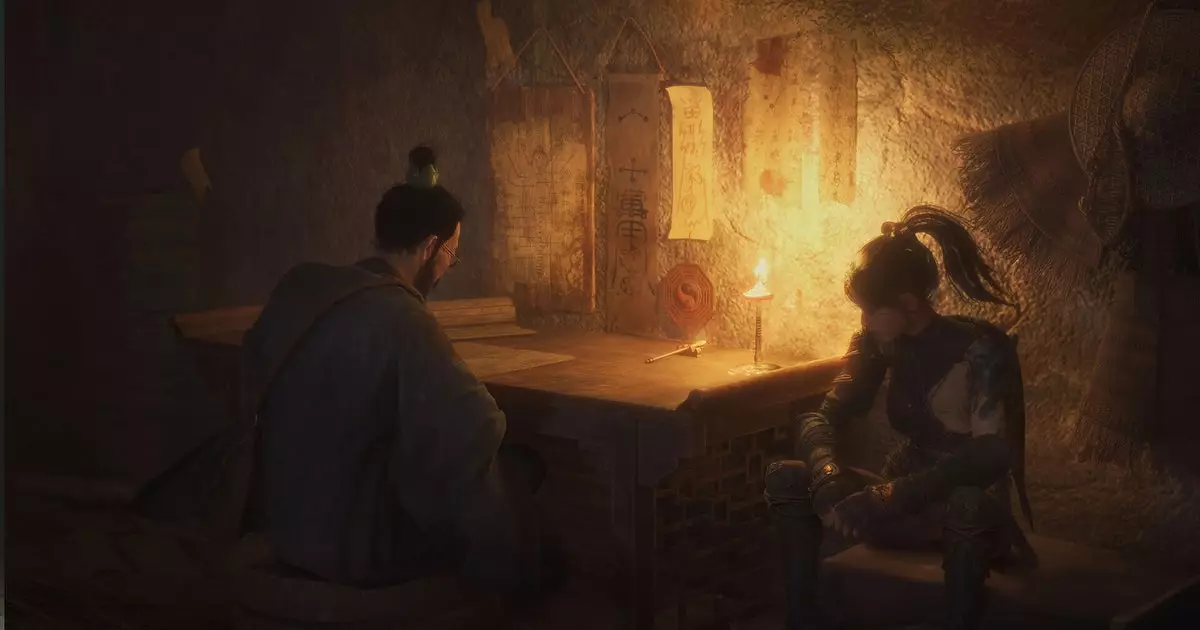In recent gaming history, developers have occasionally fallen into the trap of underestimating their player base’s desire for challenge and authenticity. Wuchang: Fallen Feathers, a soulslike that is rooted in steep difficulty and rich storytelling, has now become a case study in the tension between developer intent and player agency. The recent patch 1.5, which was seemingly in response to external pressures—possibly from a subset of Chinese gamers—altered core gameplay mechanics by making major bosses unkillable, shifting the narrative from one of heroic conquest to a passive, exhaustion-based encounter. This change signifies a broader shift where external influences can disproportionately impact game design, often at the expense of a game’s integrity.
What stands out is how these changes, while perhaps aimed at addressing community concerns, undermine the very essence of what makes Soulslike games compelling: their ruthless difficulty, meaningful story progression, and player mastery. Instead, the new patch dampens the thrill of combat, replacing visceral victories with fatigue states and in-game chatter that saps the sense of achievement. For players who have invested both time and emotional energy into Wuchang, this feels like an erosion of their agency—an imposition that dilutes the game’s core identity.
The Role of Mods in Upholding Player Freedom
In the face of developer-mandated shoehorned modifications, the modding community emerges as a vital protector of player choice. AVK95’s “Rollback censorship patch” exemplifies this resistance, allowing players to revert the game to its previous state—version 1.4—before the controversial updates. Such efforts underline the importance of community-driven tools in preserving gameplay experiences that resonate with dedicated fans. These mods do more than restore difficulty; they reaffirm the principle that players should have control over how they experience and interpret the game world.
However, the process of applying these mods exposes a concerning dependency on cumbersome technical workarounds. With Steam lacking integrated rollback features—unlike GOG.com—players are forced into complex procedures like disabling automatic updates, manually replacing files, and running executables outside the launcher. While these methods signal resourcefulness, they also highlight a disjointed infrastructure that prioritizes convenience for developers over player autonomy. This patchwork approach may alienate less tech-savvy players, creating a barrier to enjoying Wuchang’s original intent.
Furthermore, the modding community’s current solution is a temporary band-aid, not a sustainable fix. The ideal scenario would involve developers actively providing multiple versions or settings to cater to diverse player preferences. The community’s reliance on third-party mods underscores a failure in developer communication and flexibility, emphasizing how critical it is for game studios to listen and respond to their audience without moral or commercial pressure influencing core design choices.
Deconstruction of Developer-Player Dynamics
The controversy surrounding Wuchang’s patch provides a stark lesson in the complex relationship between developers and players. In an industry often characterized by top-down decision-making, player empowerment through mods can only do so much. When game updates compromise core gameplay elements—especially those integral to a genre’s identity—players are justified in feeling marginalized. The fact that a fan-created tool can restore what the developers have temporarily disrupted points to a disconnect: either a lack of sufficient communication from the studio or an inability to foresee the community’s attachment to challenging gameplay.
From a broader perspective, such incidents invite reflection on the balance of power in game development. Are developers truly considering their community’s values when implementing changes, or are external pressures—be they political, cultural, or commercial—dictating creative directions? Wuchang’s case suggests the latter, raising concerns about the integrity of game design in a landscape increasingly influenced by external forces that prioritize appeasing specific demographics or political regimes over artistic vision and player experience.
It’s also a reminder that, in the current ecosystem, players are not passive consumers—they are legitimate stakeholders with a voice. When developers marginalize these voices by enacting unpopular patches, they risk alienating their core audience and undermining brand loyalty. The community’s passion and ingenuity in creating rollback mods serve as both a wake-up call and a beacon of resilience—highlighting the importance of maintaining open dialogue and respecting the game’s original integrity.
Finally, The Future of Player-Driven Content and Developer Responsibility
Looking ahead, the Wuchang incident underscores the urgent need for more flexible game development models that embrace player feedback and mod support as integral components rather than afterthoughts. Fostering an environment where players can revert updates, customize experiences, and preserve the authentic spirit of games should be an industry standard, not an exception. This approach not only enhances community trust but also aligns with the larger cultural shift toward consumer empowerment.
Developers must recognize that their games are living entities—shaped and reshaped in the hands of those who love them most. When a patch compromises a game’s core identity, instead of authoritarian enforcement, a better strategy might involve transparent communication and offering official options for different gameplay modes. Such steps could mitigate the need for third-party mods and reduce frustration among dedicated fans.
The Wuchang scenario reveals a fundamental truth: player agency is paramount. Modders’ efforts to undo unfair or unwelcome changes affirm that a game’s true value lies in the experience it offers, untainted by external pressures. Embracing this principle could redefine the industry, fostering a more inclusive, respectful, and ultimately more successful future where players truly have the power to shape their gaming journeys.

